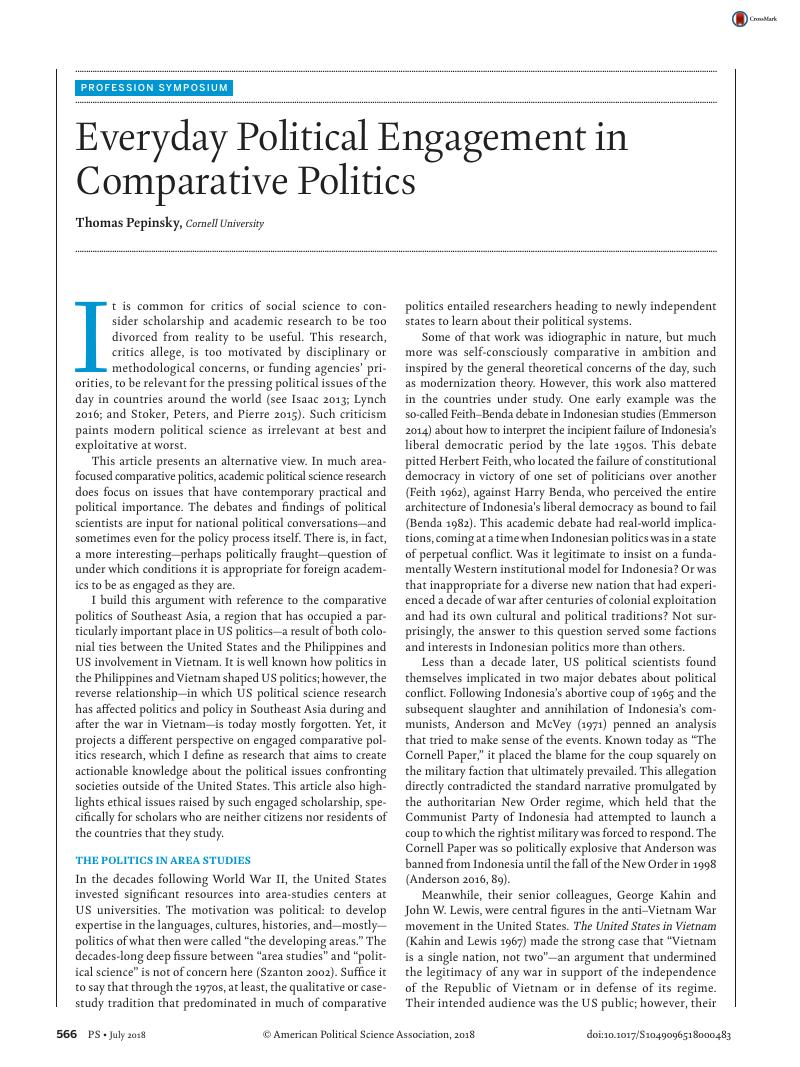Crossref Citations
This article has been cited by the following publications. This list is generated based on data provided by Crossref.
Mitra, Ankushi
McNew-Birren, Jill
and
Nickels, Ashley E.
2024.
Who counts in civically engaged research? Rethinking expertise and authority in politics.
Politics, Groups, and Identities,
p.
1.



